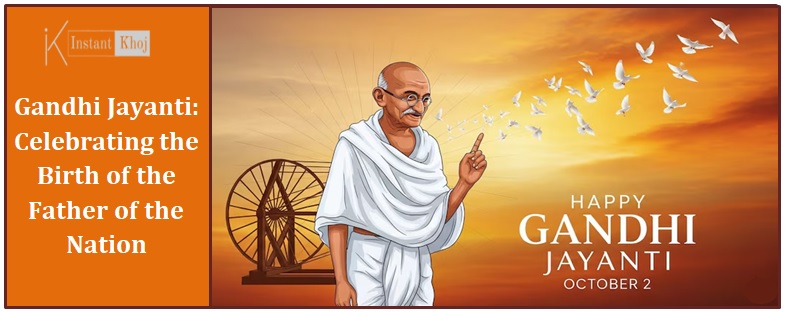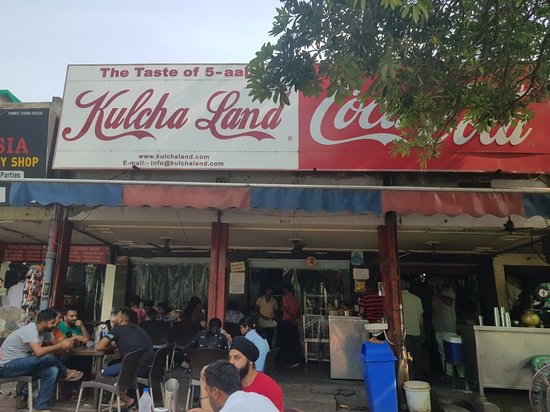Every year on the 2nd of October, India and people around the world commemorate Gandhi Jayanti, the birth anniversary of Mohandas Karamchand Gandhi, fondly known as Mahatma Gandhi or the Father of the Nation. This day honors Gandhi’s monumental contribution to India’s freedom struggle through his philosophy of non-violence (Ahimsa) and truth (Satya), values that continue to inspire generations globally.
What is Gandhi Jayanti?
Gandhi Jayanti marks the birth of Mohandas Karamchand Gandhi, born on 2nd October 1869 in Porbandar, Gujarat. Gandhi’s life is a beacon of peace, resilience, and unwavering commitment to justice. The day is a tribute to his legacy, promoting his ideals of non-violence, civil rights, and social harmony.
Unlike many national celebrations, Gandhi Jayanti is not just a patriotic festival but a solemn day of reflection on the power of peaceful resistance and moral courage. It reminds us how one man’s peaceful methods led a vast and diverse country to independence from British colonial rule.
The Life and Legacy of Mahatma Gandhi
Mahatma Gandhi’s journey from a young barrister in London to the leader of India’s freedom movement is a saga of courage and humility. His principles were deeply rooted in:
-
Ahimsa (Non-violence): Gandhi preached and practiced non-violent resistance, believing that violence only breeds more violence.
-
Satyagraha (Truth Force): He emphasized adherence to truth and moral courage to bring about social and political change.
-
Self-reliance: Gandhi championed economic independence through the promotion of Khadi (hand-spun cloth) and encouraged villagers to sustain themselves.
-
Social Equality: He fought against the caste system and untouchability, advocating for the upliftment of marginalized communities.
Gandhi’s philosophies were not limited to India but inspired global civil rights movements, including those led by Martin Luther King Jr. and Nelson Mandela.
When and How is Gandhi Jayanti Celebrated in India?
Date of Celebration
Gandhi Jayanti is celebrated annually on 2nd October, coinciding with Vijayadashmi (Dussehra) in some years. It is a national holiday in India, observed with official ceremonies, educational programs, and community activities.
Major Celebrations and Observances
-
Prayers and Tributes: The day begins with prayer services and tributes at Raj Ghat, Gandhi’s memorial in New Delhi, where the Prime Minister, President, and other dignitaries pay homage by laying wreaths.
-
Cleanliness Drives: Inspired by Gandhi’s emphasis on cleanliness and sanitation, many institutions and communities organize Swachh Bharat Abhiyan (Clean India Campaign) activities, including cleaning public spaces.
-
Cultural Programs: Schools and colleges conduct competitions, skits, and seminars that highlight Gandhi’s teachings and principles.
-
Exhibitions and Lectures: Museums and cultural organizations arrange exhibitions, lectures, and film screenings depicting Gandhi’s life and ideals.
-
Flag Hoisting and Processions: Various parts of the country witness flag hoisting, peace marches, and community gatherings promoting unity and non-violence.
-
Promotion of Khadi: On Gandhi Jayanti, wearing Khadi is seen as a mark of respect to Gandhi’s vision of self-reliance and rural empowerment.
Also Read:
Vijayadashmi 2025: Meaning, Rituals & Celebrations in India
Follow Blog’sonInstantkhoj for more latest stories and trending topics.
Where is Gandhi Jayanti Celebrated with Special Reverence?
While Gandhi Jayanti is a nationwide event, some places in India celebrate it with exceptional devotion and unique traditions:
1. Raj Ghat, New Delhi
The most iconic site of Gandhi Jayanti celebrations is Raj Ghat, Gandhi’s memorial in the capital city. Every year, top political leaders, foreign dignitaries, and thousands of citizens gather here to honor Gandhi’s memory with floral tributes and moments of silence.
2. Porbandar, Gujarat
The birthplace of Gandhi, Porbandar, observes the day with special ceremonies, exhibitions, and cultural programs reflecting his early life and roots.
3. Sabarmati Ashram, Ahmedabad
Located on the banks of the Sabarmati River, this ashram served as Gandhi’s home for many years and the base for the historic Dandi March. It hosts commemorations that include prayer services and reflections on his teachings.
4. Wardha, Maharashtra
Wardha was home to the Sevagram Ashram, where Gandhi lived during much of the freedom struggle. The ashram and local community hold special events promoting Gandhi’s ideals of rural development and simplicity.
5. Schools and Universities Across India
Educational institutions nationwide hold debates, essay competitions, and performances dedicated to Gandhi’s vision and philosophy.
Gandhi Jayanti Around the World
Gandhi’s philosophy of non-violence has universal appeal, and many countries observe International Day of Non-Violence on 2nd October, as declared by the United Nations in 2007. Events and seminars are held worldwide to honor Gandhi’s enduring legacy as a global peace icon.
Why is Gandhi Jayanti Important Today?
In today’s fast-paced world, Gandhi Jayanti reminds us of the enduring power of peace, tolerance, and compassion. Gandhi’s teachings encourage:
-
Peaceful conflict resolution
-
Respect for human rights
-
Sustainable living and simplicity
-
Social justice and equality
Especially in times of political and social unrest, Gandhi’s message remains relevant, urging individuals and nations alike to embrace non-violence and dialogue over aggression.
Frequently Asked Questions (FAQ) about Gandhi Jayanti
1. Why is Gandhi Jayanti celebrated on 2nd October?
Gandhi Jayanti is celebrated on the birth anniversary of Mohandas Karamchand Gandhi, who was born on 2nd October 1869.
2. Is Gandhi Jayanti a national holiday in India?
Yes, Gandhi Jayanti is a national holiday observed throughout India.
3. What are some common ways to observe Gandhi Jayanti?
People participate in prayer services, cleanliness drives, cultural programs, and tributes at Gandhi’s memorials. Schools also organize educational events to spread awareness of his teachings.
4. How does Gandhi Jayanti relate to the International Day of Non-Violence?
The United Nations declared 2nd October as the International Day of Non-Violence to honor Gandhi’s philosophy and promote peace globally.
5. What is the significance of wearing Khadi on Gandhi Jayanti?
Wearing Khadi honors Gandhi’s vision of self-reliance, rural empowerment, and resistance against colonial economic policies.
6. How does Gandhi Jayanti inspire the youth?
Gandhi Jayanti inspires young people to embrace values of honesty, non-violence, community service, and to stand against injustice peacefully.
Conclusion
Gandhi Jayanti is more than just a birth anniversary; it is a day to remember and renew our commitment to the values that Mahatma Gandhi stood for — truth, non-violence, and compassion. As India continues to grow and evolve, Gandhi’s teachings provide a timeless guide for building a society grounded in justice and harmony.
On 2nd October 2025, as the nation celebrates Gandhi Jayanti, let us all reflect on his enduring legacy and strive to bring about positive change in our own lives and communities — through kindness, courage, and peaceful action.
Also Read:
Vijayadashmi 2025: Meaning, Rituals & Celebrations in India
Follow Blog’sonInstantkhoj for more latest stories and trending topics.




